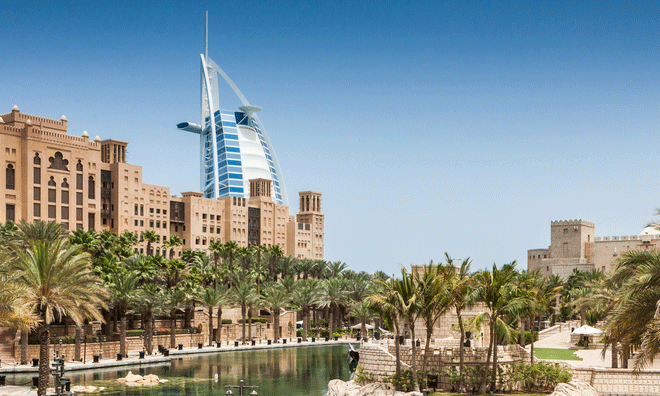Jumeirah plans to double portfolio of hotels by 2018
Dubai-based hotel group currently has 22 hotels under its brand

Jumeirah Group, the Dubai-based hotel operator, plans to almost double its portfolio of hotels within the next three years, its president, Gerald Lawless, has said.
The Group, which currently has 22 hotels under its brand – both owned and managed – in markets as diverse as the UAE, Kuwait, China, Britain and Italy, will open one or two hotels in 2015, Lawless told Reuters. A further 20 will be opened by 2018.
While he declined to name locations, it is known that Jumeriah Group is in the process of opening a hotel in the Russian city of St Petersburg, and that it is actively looking for opportunities in Moscow, the Reuters report said.
The timing of his statement comes as a surprise given the ongoing geopolitical and economic tensions around the world. Russia’s economy is widely forecast to shrink this year in the face of sliding oil prices and Western sanctions over the Ukraine crisis. A large percentage of Dubai’s tourism market is made up of Russian visitors.
However, Lawless remained confident that his company wouldn’t be seriously affected by these events, pointing out that the target market for Jumeirah Group were wealthier Russians who would be less affected by economic problems.
He added that Jumeirah wouldn’t be seriously affected by economic troubles in the Eurozone as there were still a healthy amount of tourists arriving from several European countries.
According to figures released by Emaar in 2014, five star hotel rooms account for up to 62% of the total branded hotel inventory in Dubai. Half the upcoming inventory is also in the upscale category.
Filippo Sona, head of hotels at Colliers International’s MENA operations, told Big Project ME that Dubai has the highest demand for hotels in the UAE. In 2013 alone, the city’s hotels registered 18.1 million room nights. In next place was Abu Dhabi, with a mere five million room nights.
However, he pointed out that there was a clear shift in demand for luxury accommodation in the city, with more and more tourists and travellers looking at budget options.
“Market analysis suggests two and three star hotels contribute approximately 22% of room nights in the UAE,” Sona said. “In Sharjah, two and three star hotels contribute approximately 39% of room nights.
“Two and three star hotels in the UAE have experienced higher occupancies than four and five star hotels,” Sona reveals. “With the expected increase in the number of visitors in the region, two and three star hotels can expect a similar increase in demand in the coming years.
Sona added that he expected the two and three star hotel market in the UAE to pick up in the coming years, especially in light of Expo 2020, which could see increased business-orientated travel from Europe, Africa, China, South East Asia and the Indian subcontinent.
“The two- and three-star hotel market in the UAE mainly attracts corporate demand from Southeast Asian countries and Arab states such as Egypt, Jordan and Kuwait. The leisure market has been growing too, as more price-sensitive visitors from Asia, Eastern Europe and Commonwealth of Independent States (CIS) countries prefer staying in Dubai on a budget.”















